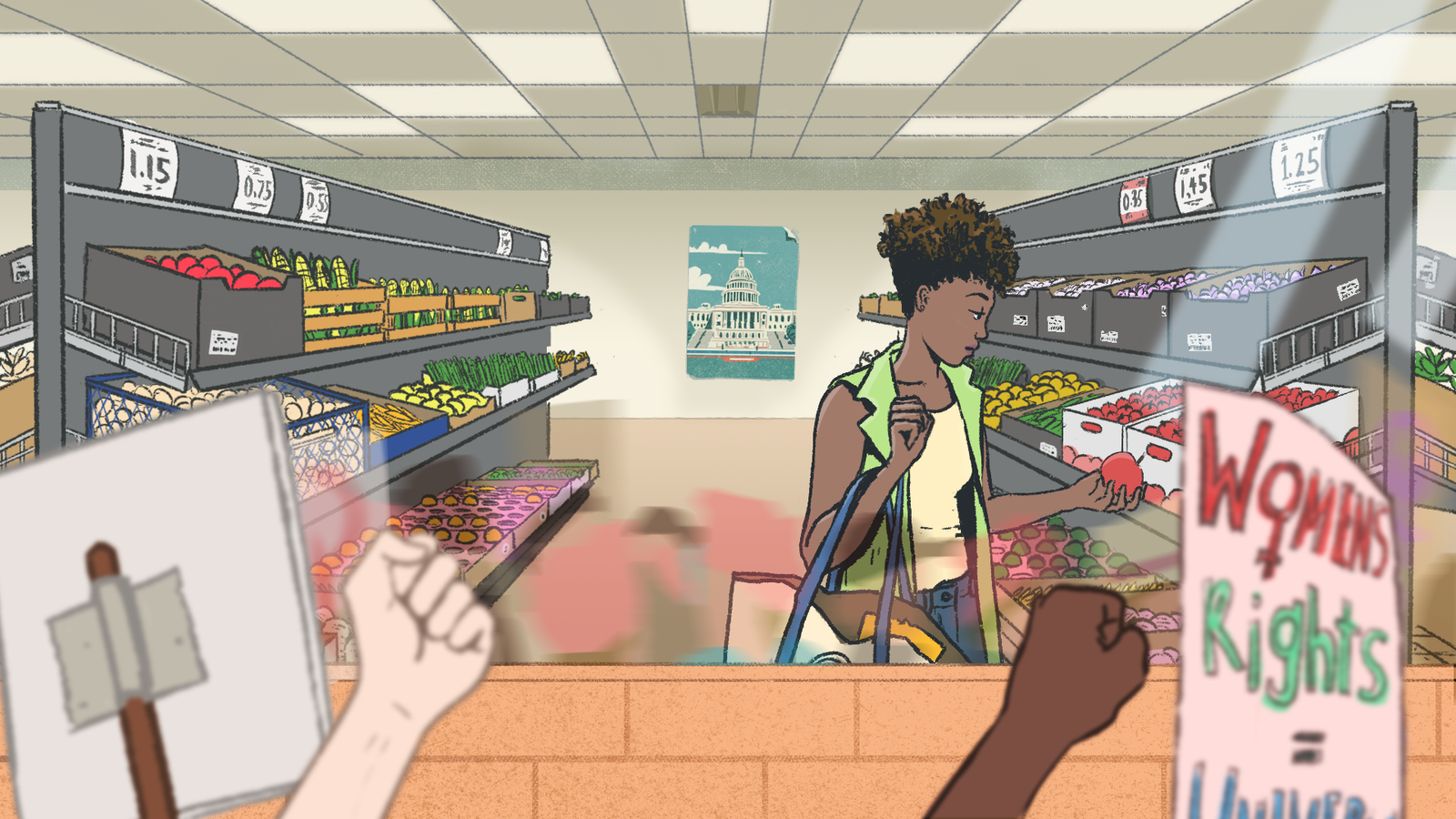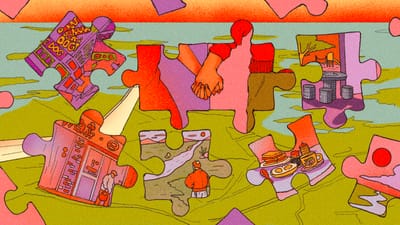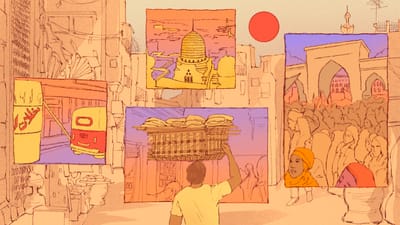For what is happening in this country, Washington DC remains in a suspended state of calm. The occasional protest erupts, disperses, and leaves behind the residue of sweat, tears, and pepper spray. The thought of America today conjures the images of Palestinian flag waving college students or chest thumping right-wing militants unfurling “Trump 2024” banners. There is the impression that chaos has consumed this country, but I do not see that. What I sense is chaos in the American soul.
I stood on the white marble steps of the Supreme Court the day it announced its decision on whether Donald J. Trump, former president, would enjoy immunity from criminal prosecution for official acts during his time in office. News cameras were everywhere. A few impassioned protesters gathered too, waving signs. One read “coup plotters to prison!” and another, “Clarence Thomas (perhaps the most controversial of the nine Supreme Court justices) has no moral authority to decide laws for the rest of U.S.”. The Trump v. The United States ruling granting Trump immunity did not impress them. There was discontent inside too. In her dissenting opinion, Justice Sonia Sotomayor expressed that the decision now allowed a president to be a “king above the law”. Nothing noticeable changed. Cars passed by, the DC metro continued running, and the shelves at Trader Joe’s remained fully stocked.
Even when a sniper tried to assassinate Donald Trump in Butler, Pennsylvania, 400 km to the north, there were only hushed whispers in cafes across the city.
“Did you see the video of Trump getting shot?”
“Yes, horrible what is happening to our country.” answered one voice.
From a separate conversation on another table I heard, “If only he didn’t miss.”
Washington DC is a sight to see. It is a sight, not a city to be truly lived in. The streets lined with offices and embassies are empty and dead when work has become a matter of the past. Under the city’s bridges, the homeless huddle in their tents, passing their days without knowing the end to their poverty. When the buses become unreliable, the metro remains an option. As one descends into the brutalist depths undergirding the District, peculiar smells of human refuse and marijuana. By the platform, a hooded man stands still, then moves suddenly, flailing his arms. He freezes. His body shakes, an entire spasm runs through him. “He’s probably on drugs,” a friend reassures me. There is not a look of disappointment, not even a sign of pity; only indifference.
This is the heart of American democracy. Where decisions are made and where representatives and senators gather as defenders of their individual state interests with the ideal outcome of compromise to pursue what is best for this Union. What remains true of the greatness of American Democracy and Western Civilization I was taught is slowly fading. What has become of this country that was once an inspiration for the oppressed, the shining beacon for those parts of the world shrouded in the darkness of dictatorship? We have in recent years gone in circles chasing answers to such questions, with no satisfactory conclusions. The very act of seeking solutions to the ailing institutions of this country, and the global order, has become trite. There is a sense that the Great Peace my generation has enjoyed is coming to an end.
In the 1939 American film “Mr. Smith Goes to Washington”, James Stewart plays a naive, newly appointed senator wrestling with the political machinery that controls all that was meant for the people. Smith wants to create recreational camps for young children to discover their patriotism and understand what America means. Late one night, while discussing with his secretary how the camps should be constructed, he points from the window to the Capitol’s shining white dome:
“That’s what’s got to be on it…the Capitol dome. I wanna make that come to life for every boy [it was a different time] in this land…you see, boys forget what their country means by reading ‘the land of the free’ in history books. Then they get to be men and they forget even more. Liberty is too precious a thing to be buried in books…men should hold it in front of them every single day of their lives and say, ‘I’m free to think and to speak. My ancestors couldn’t. I can, and my children will.’”





